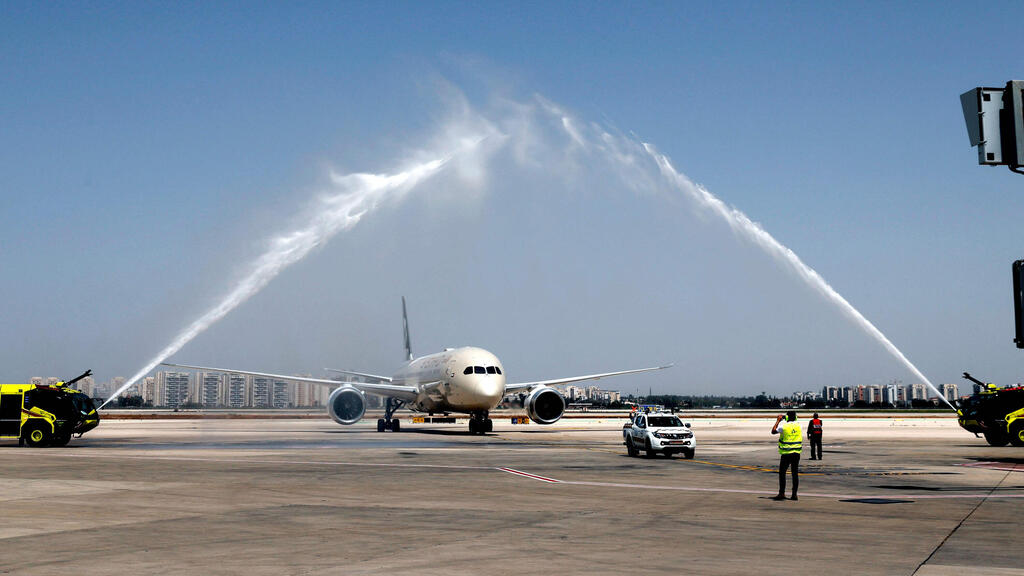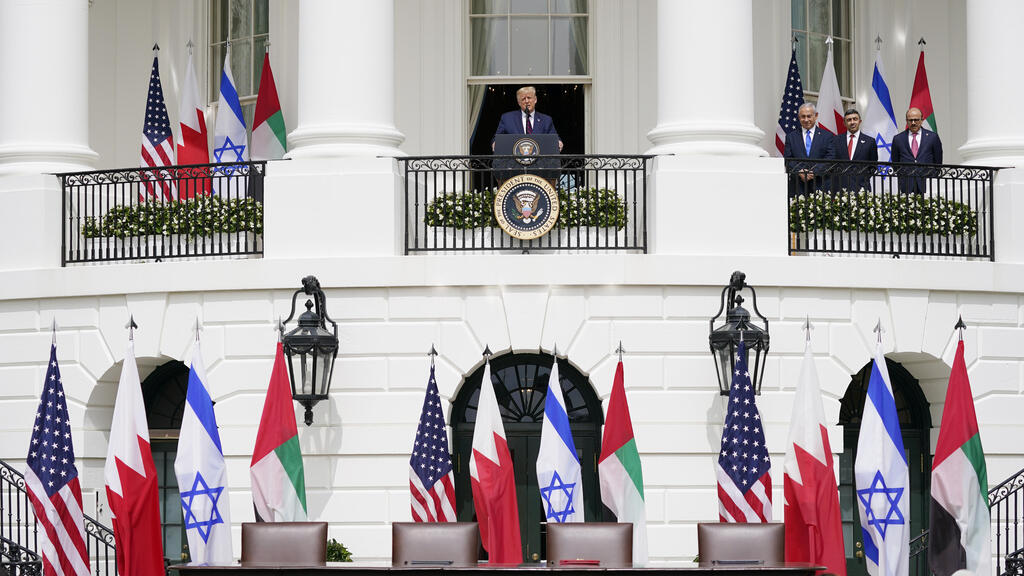Tuesday morning was the designated expiration dates for the flights from Israel to the United Arab Emirates. Although Israel decided to postpone this halt, officials express warnings that if tensions continue to rise, a potential crisis with the Arab state is on the horizon.
Airlines Direct El Al, Israir and Arkia's flights from Tel Aviv to Dubai were among the fruits of the landmark deal establishing ties between Israel and the UAE in 2020. Hundreds of thousands of Israelis have visited the UAE commercial hub since.
2 View gallery


A water salute welcomes an Etihad Airways Boeing 787-9 aircraft after landing upon arrival from the United Arab Emirates (UAE) at Israel's Ben Gurion Airport
(Photo: AFP)
But Israel's Shin Bet security service has voiced some vague concerns about arrangements at Dubai International Airport and said the three national airlines would stop operating there if these went unresolved.
The current flight arrangements were due to expire on Tuesday. But a senior Israeli official said Transport Minister Merav Michaeli extended the deadline "by about a month" so the negotiations could continue.
Dubai authorities have yet to comment on the issue.
Parallel to the deadline extension, Israel increased pressure on the UAE to address its security concerns.
"Should the Israeli airlines eventually stop flying to Dubai... that would spell a de facto end to their UAE operations and prompt a reciprocal ban", said the official, who spoke on condition of anonymity. "If El Al can't fly to the Emirates, then Emirati companies can't land here".
Emirati state carrier FlyDubai operates direct Dubai-Tel Aviv flights and Dubai's Emirates has been looking to launch flights to Israel. Etihad Airways and Wizz Air fly from Abu Dhabi to Tel Aviv.
"The crisis could be regional, not just bilateral," the Israeli official said, citing UAE's cornerstone role in the Abraham Accords, a U.S.-sponsored effort to warm relations between Israel and a range of Arab countries. "It could have a huge impact."
2 View gallery


President Donald Trump speaks during the Abraham Accords signing ceremony on the South Lawn of the White House,
(Photo: AP)
The UAE foreign ministry did not immediately respond to an emailed request for comment.
Israel rarely publishes its aviation security measures. However, possible measures inferred could include designating special areas of airports or even separate terminals, for these passengers, parking planes under Israeli guards' supervision, and the presence of armed sky marshals aboard the flights.
The Shin Bet has suggested that UAE capital Abu Dhabi could serve as an alternative for the Israeli carriers, should they no longer be able to fly to Dubai. But the senior Israeli official ruled this out, saying Abu Dhabi attracted far less traffic.
"Abu Dhabi may be an option security-wise, but it is not an economic option," the official said.

